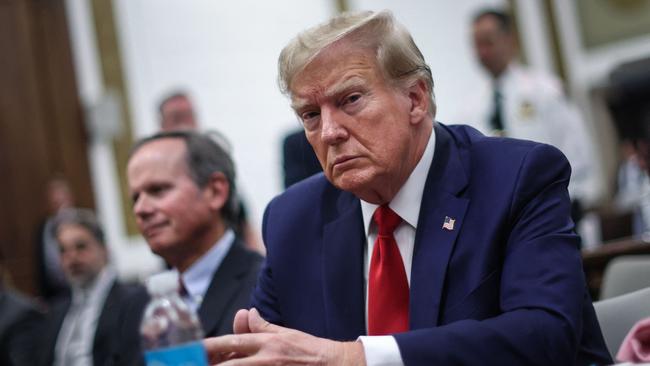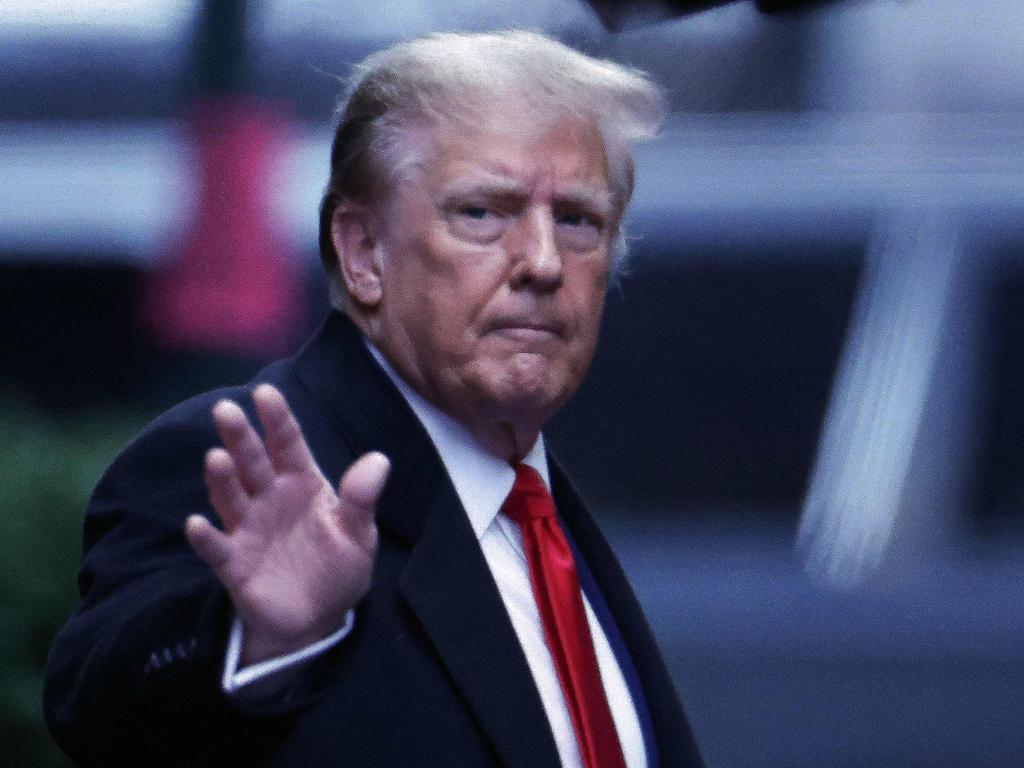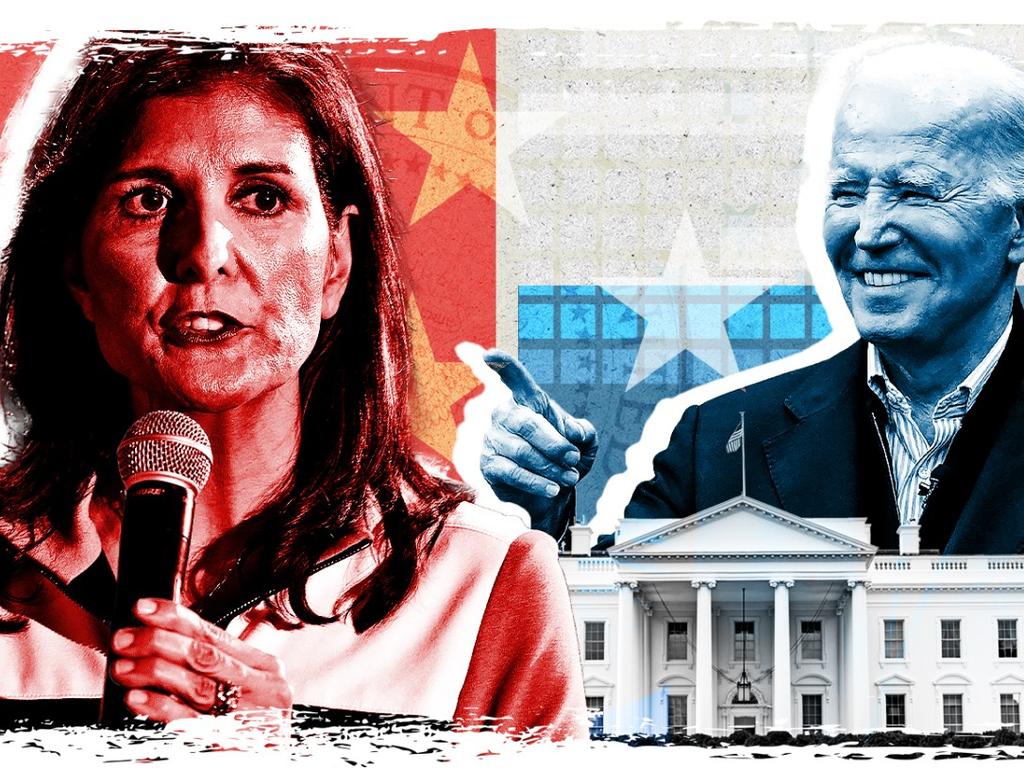US Appeals Court rejects Donald Trump’s claim over 2020 election plot
A panel dismissed Donald Trump’s arguments that his efforts to undo the 2020 result, including by false claims of voter fraud, fell within the ambit of his official duties.

Donald Trump isn’t immune from prosecution on charges he plotted to overturn the 2020 election, a federal appeals court unanimously ruled Tuesday, handing the former president an expected defeat that he suggested he would contest at the Supreme Court.
A three-judge panel of the U.S. Court of Appeals for the D.C. Circuit dismissed Trump’s arguments that his efforts during the final months of his presidency to undo his loss, including by promoting false claims of voter fraud, fell within the ambit of his official duties. That was a crucial tenet of Trump’s defence.
“For the purpose of this criminal case, former President Trump has become citizen Trump, with all of the defences of any other criminal defendant,” the panel wrote in a 57-page opinion. “But any executive immunity that may have protected him while he served as President no longer protects him against this prosecution.”
The decision came just days after a federal judge indefinitely postponed Trump’s trial, initially set for March 4, pending the former president’s appeal. Judge Tanya Chutkan, an Obama appointee, had rebuffed Trump’s immunity claims in early December, ruling that his former office “does not confer a lifelong ‘get-out-of-jail-free’ pass.”
In upholding that decision unanimously, the D.C. Circuit panel presented a unified front in rejecting Trump’s immunity claims and delivered the “best-case result” for special counsel Jack Smith and his trial team, said Randall Eliason, a George Washington University law professor and former public-corruption prosecutor.
“It dramatically increases the chances there will be a trial this year,” Eliason said.
The D.C. Circuit panel gave Trump’s legal team until Feb. 12 to appeal to the Supreme Court before the decision takes effect. If Trump goes to the justices within that six-day stretch, the panel said, its decision won’t take effect pending the Supreme Court’s consideration.
The former president will seek an appeal “in order to safeguard the Presidency and the Constitution,” said Steven Cheung, a Trump spokesman.
“If immunity is not granted to a President, every future President who leaves office will be immediately indicted by the opposing party,” Cheung said. “Prosecuting a President for official acts violates the Constitution and threatens the bedrock of our Republic.” Trump, the Republican frontrunner, is facing four criminal indictments. It is unclear how many of those cases may see jury trials during this election year. He has a prohibitive lead in the polls, secured in part by capitalising on his criminal jeopardy and casting himself as the target of politicised prosecutions.
He has sought to cast his immunity battle as essential to preserving the authority of the presidency. “Even events that ‘cross the line’ must fall under total immunity,” Trump wrote on Jan. 18 in an all-upper case post on his Truth Social platform and on X.
Though its ruling is not likely to be the final word on whether Trump is immune, the appeals court sought to answer a novel question of whether former presidents can avoid criminal prosecution for actions they took while in office.
“We have balanced former President Trump’s asserted interests in executive immunity against the vital public interests that favour allowing this prosecution to proceed,” the opinion said.
The judges said Trump’s contention that he is entitled to categorical immunity is “unsupported by precedent, history or the text and structure of the Constitution.” And the panel said it wasn’t persuaded by Trump’s argument that he couldn’t face prosecution because he was impeached by the House, but acquitted by the Senate, for related conduct.
Rejecting that double-jeopardy argument, the D.C. Circuit panel said “the weight of historical authority indicates that the Framers intended for public officials to face ordinary criminal prosecution as well as impeachment.” The three-member appellate panel was made up of Judge Karen L. Henderson, a George H.W. Bush appointee, and Judges Florence Y. Pan and J. Michelle Childs, both named to the court by President Biden.
During oral arguments on Jan. 9, Trump lawyer D. John Sauer urged the judges to toss the case, arguing that a former president cannot face criminal prosecution for “official acts” unless first impeached by the House and convicted by the Senate.
He also said ruling against immunity in Trump’s case would hamper future presidents. “If a president has to look over his shoulder or her shoulder every time he or she has to make a controversial decision … that inevitably dampens the ability of the president,” he said.
Smith’s team, which brought the federal charges, argued that Trump’s efforts to reverse the election results, which prosecutors say led to the Jan. 6, 2021, attack on the U.S. Capitol, were criminal and didn’t constitute official acts that would be covered by presidential immunity.
“Never before have there been allegations that a sitting president has, with private individuals and using the levers of power, sought to fundamentally subvert the democratic republic and the electoral system,” James Pearce, one of Smith’s lawyers, said in court. “And, frankly, if that kind of fact pattern arises again, I think it would be awfully scary if there weren’t some sort of mechanism to reach that criminally.” Trump’s legal team has highlighted a 1982 decision involving former President Richard Nixon, in which the Supreme Court held that presidents enjoy absolute immunity from civil lawsuits related to their official acts. Smith’s team has pointed to Nixon’s acceptance of a pardon amid the Watergate scandal in 1974 as reflecting the “consensus view” that a former president can face prosecution after leaving office.
If Trump appeals the ruling to the Supreme Court, it would bring to three the number of cases tied directly to Trump the justices would rule on before July.
The high court is considering the former president’s appeal of Colorado’s landmark ruling that he is an insurrectionist and unfit for public office. And in December the justices said they would consider whether prosecutors exceeded the scope of federal obstruction laws in hundreds of criminal cases relating to the Capitol attack, and in Smith’s case against Trump.
Dow Jones







To join the conversation, please log in. Don't have an account? Register
Join the conversation, you are commenting as Logout